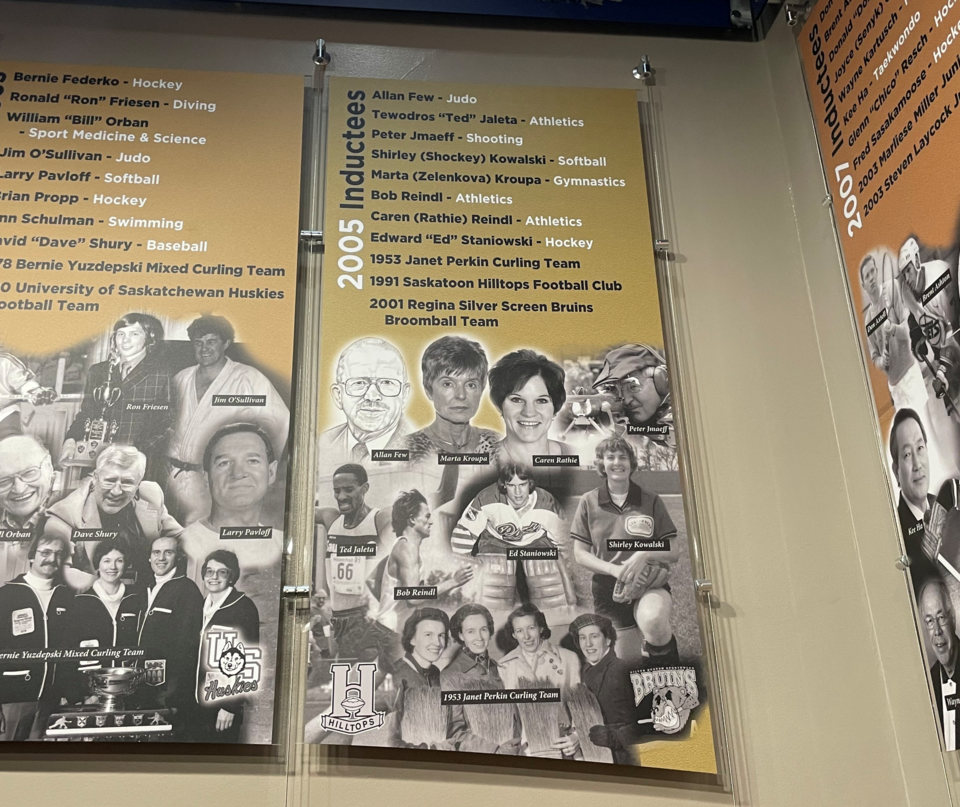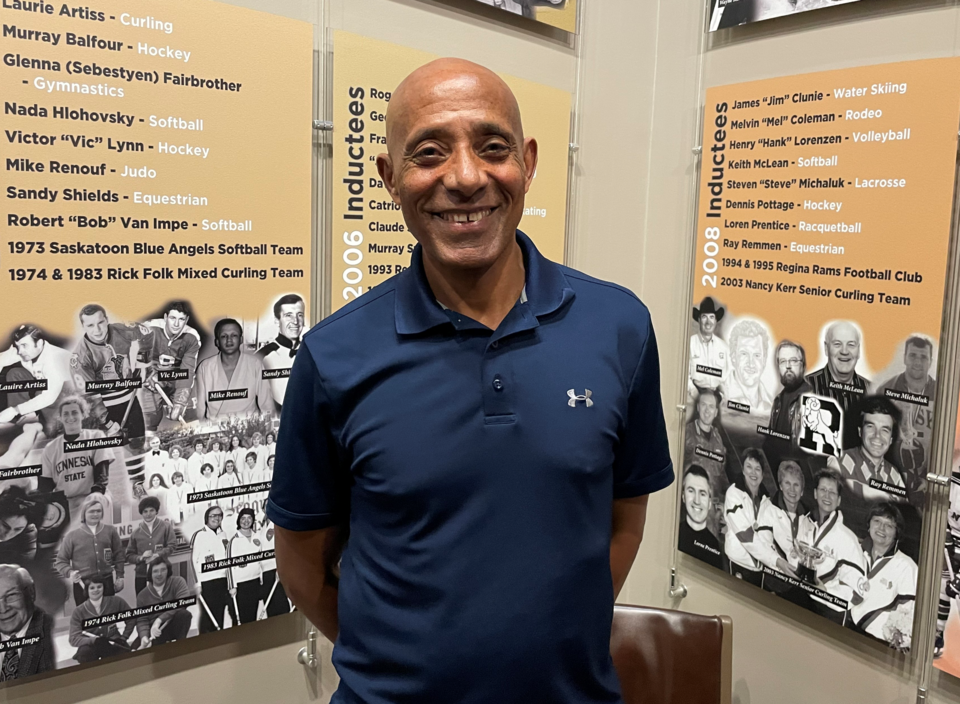REGINA - Saskatchewan Sports Hall of Famer Ted Jaleta discovered his passion for running when he was a young child in his home country of Ethiopia.
He first started to get into running because one of his teachers saw Jaleta run while he was playing soccer and asked him if he wanted to join the cross-country team.
Despite being a fast runner, Jaleta didn’t have any shoes to wear because his family was poor, but that never bothered him.
After joining cross-country, Jaleta started accomplishing many feats, including reaching nationals in his home country.
Jaleta started taking running seriously after hearing the story of his idol, Abebe Bikila. He was "an Ethiopian barefoot runner, and won the marathon in 1960 in Rome running barefoot, and also 1964 in Tokyo. He was a back-to-back champion. So [he] came and spoke in our school at the time after he had been in a car accident and was paralyzed. And that's a hero [in my eyes]," said Jaleta.
Because of his extra motivation, Jaleta was recruited to join the Ethiopian junior national team. He described it as being "similar to be[ing] selected by the Canadian hockey league actually to be in the world juniors."
Jaleta was well on his way to one day representing his country in the Olympics. However, around 1974, a civil war broke out in Ethiopia.
At the time, Jaleta had a choice to make. He would either side with the government and join the police or army or stand with the citizens of Ethiopia.
Even though making it to the Olympics was a big aspiration for Jaleta, he would rather sacrifice the chance to participate in the event so that the people of his country could live better lives.
Jaleta, growing up, had a negative experience with religion. The people of his country were forced to adopt Christianity from their original beliefs, which were dismissed as "uncivilized" and "pagan."
His family also faced ridicule for following a plant-based diet. The mockery got so bad that Jaleta's mom would prepare their meals at night to avoid further criticism.
Because Jaleta decided to side with the people, he was shot and arrested during a peaceful protest.
With nowhere else to turn to, Jaleta risked his life to flee the country. Even with all the hardships he faced, Jaleta felt he made "the right decision, even though it almost cost [me, Jaleta] my life."
Jaleta moved to different countries for a few years before applying to immigrate to Canada in 1982. He believed his dream of running was over, as Jaleta was no longer in his "prime years," so he stopped running once he began his new life.
The new life in Canada, for Jaleta, was not going well. His experience in graphic artistry back home was not good enough for the employers in Canada, so he took on other jobs.
Jaleta struggled to keep a consistent job, feeling "rotten" because his future was not looking good. Because of the stress and worry Jaleta faced with being able to afford meals and a place to rent out, he started to smoke.
Consequently, smoking is what led Jaleta back on a better path. He was sitting at the legislature one day when he saw people running around the area. Jaleta thought, "I could do this, [too]."
Eventually, Jaleta joined the YMCA, where he started running on a consistent basis.
Within a year of starting to run again, Jaleta was winning local and national competitions. Jaleta is a three-time Canadian Masters Road Race Champion and won the SaskSport Master Athlete of the Year in 1997.
Because of his feats, in 2005, Jaleta was inducted into the Sask. Sports Hall of Fame. While Jaleta appreciates being inducted into the hall of fame, he feels the biggest achievement in his life is having a normal life, having a family and a place to call home.

He mentioned during his time in refugee camps, he saw others commit suicide. Jaleta even admitted he had thoughts of suicide himself. Since Jaleta overcame all the hurdles in his life, he feels that is his biggest achievement.
While Jaleta has overcome his challenges, he understands many are still in need of help. In 2011, Jaleta organized a running group called Jaleta Pacers, where he trains people, and the group raises funds for different charities in the community.
Since 2011, the organization has raised "$300,000, almost over a quarter million for local charities. We just give [aid] for [those who are the] most vulnerable. Last year we raised $41,000, some of [that money] went to mental health, some of the [money] went for food insecurity for the public school, kids and newcomers [and] the Indigenous [people]," said Jaleta.
The people Jaleta trains can join for free. He mentioned how past runners in the group have obtained" a U.S. scholarship, and some of them [also] got a PhD."
Jaleta also tells his story of hardship to others through the Sask. Sports Hall of Fame. He wants to use it as a way to encourage those who are dealing with challenges or obstacles to push themselves to move forward.
He pointed out "always loving [to hear when] other people do well. Jaleta wants to be "actually part of that success and when they reach their goal."
The dream of Jaleta making it to the Olympics never did happen. However, Jaleta feels "the legacy you left [behind] for your community. How you help [others]" is important or even more important than winning a medal.




